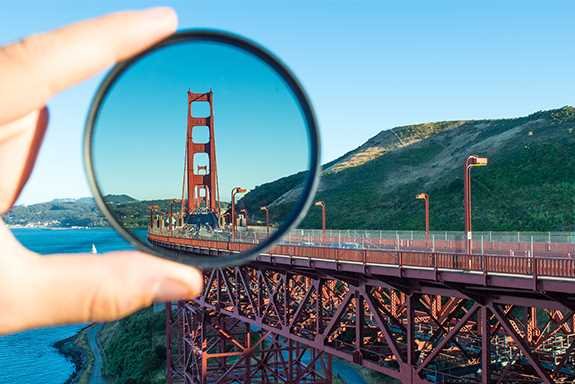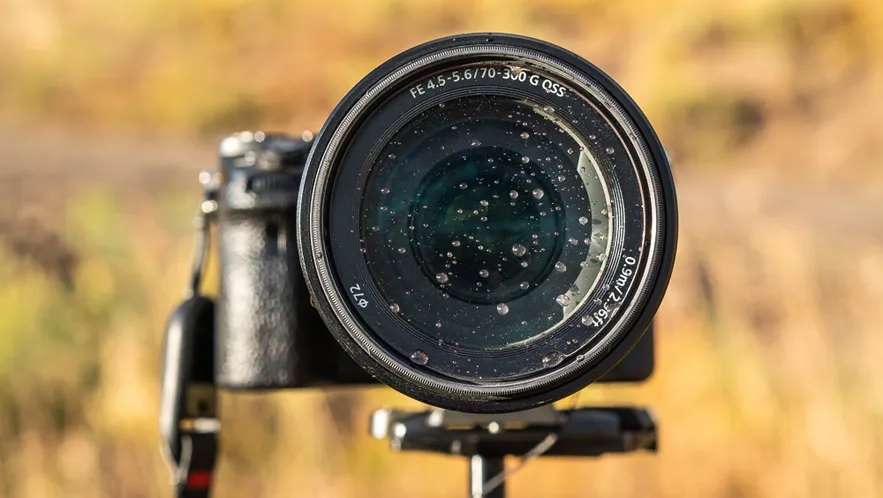Table of Contents
A UV filter is fitted on the back of the camera lens. It blocks ultraviolet radiation. These filters were once needed to shoot film, but photographers nowadays use filters to shield their lenses. Let us describe what is UV Filter in detail and why you need it to protect your camera lens.
There are a lot of misconceptions regarding the UV filter to protect the lens. Certain photographers make sure it’s required. Others say it’s an expense. UV filters are glass filters that sit on the lens’s front and block UV rays. Moreover, they were once essential for film photography. However, nowadays, most photographers utilize filters to shield their lenses.
There’s plenty of false information about UV filters on the market. Certain photographers believe they’re necessary. Therefore, some salespersons aren’t letting you leave with a new lens in certain photography shops unless you’ve paid for UV filters.
What Does a UV Filter Do?

A UV filter blocks the light from entering the lens. Consider it the camera’s sunscreen. Certain old photography films were extremely susceptible to light from UV. Even if you didn’t apply a UV filter and didn’t, you’d be left with a blue haze appearing in your photographs. It was particularly common when you were shooting wherein a location with a lot of UV light, for instance, when it was a very hot day or at an altitude. Also, it is evident in this photo taken by the MoominSean account on Flickr.
Modern films and digital sensors don’t react to ultraviolet light. They don’t suffer as they did in older films. It’s not necessary to use a UV filter to block UV light to get good pictures. Some camera stores aren’t willing to let you go with a brand-new lens if you don’t have UV filters to safeguard it.
Does a UV Filter Protect Your Lens?
This idea is that should you fall on your lens, worth $2,000, rather than breaking off the front portion that makes up the lens, damage the UV filter for $35 instead. While the concept is appealing in theory, it cannot hold out in reality.
Steve Perry from Backcountry Gallery tested various filtering and lens types. He discovered that the filters provided only minimal protection if any.
Perry’s most significant takeaway was that the glass in UV filters was less durable than the glass in front elements of lenses. The filters break due to drops that do not even damage the lens regardless of whether a filter is attached. If it struck the lens with enough force that its front part is destroyed, it was typically a significant amount of internal damage. In rare instances, the UV filter could have prevented the front element from being damaged, but the lens was dead regardless.

That’s why should it happen that you fall on your lens that has UV filters and the filter is damaged; however, not the lens. What you did was break the filter. The lens could have been fine in any case. If it falls on your head without a UV filter and the lens breaks, the filter could not have saved it.
It doesn’t mean that UV filters don’t offer any protection. They aren’t able to protect you from hard drops. They’re excellent for shielding your lens from scratches, dust sea spray, and other environmental dangers.
Optical Effects of UV Filters
When it comes to UV filters, one final aspect to think about placing any additional glass between your lenses can affect the image quality.
UV filters block only a small portion of the light that enters the filters. It isn’t a noticeable issue and can be easily corrected by Photoshop; however, it’s present.
Lens Hood vs UV filter for protection
Lens Hood Pros
- Guards against flare from the lens
- Enhances the color saturation
- Enhances image quality overall
- Protects camera lens
- Multiple lens versions available for each
Lens Hood Cons
- It isn’t easy to store
- Big and bulky
UV filter Pros
- Protects against various lighting sources
- Useful for effects of artistic nature
- A good investment for film cameras, particularly UV filters
- Protects camera lens
UV filter Cons
- Impacts image quality
- Significant investment
- UV light doesn’t affect digital photography
Also Read:

